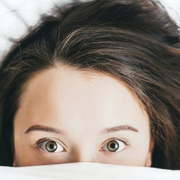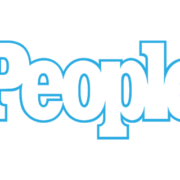Muče vas čudni snovi i nesanica? Evo što bi moglo pomoći
TIJEKOM ovog neočekivanog i neizvjesnog perioda, nije neobično imati čudne snove ili probleme sa spavanjem. Svi koji žive pod stresom zbog globalne pandemije mogu iskusiti navedeno.
“Okruženi smo neizvjesnošću i to se manifestira kao stres, a on utječe na nas i naše bližnje”, kaže psiholog Kevin Gilliland za časopis People.
Neobični snovi
Bila pandemija ili ne, stručnjaci se slažu da snovi sačinjavaju dio sadržaja iz našeg svakodnevnog života.
“Trenutno nam dane ispunjavaju tuga, otuđenje, strah, olakšanje, tišina, usamljenost i dosada pa je normalno da će se navedene emocije ušuljati i u snove”, pojašnjava dr. Gilliland.
“Tijekom dana pokušavamo filtrirati svoje brige, čak i želje, a kad spavamo, taj dio mozga se opušta i te stvari izlaze na površinu”, dodaje.
Sering Mimpi Buruk atau Kena Insomnia Saat di Rumah Aja? Ini Alasannya!
Suara.com – Apakah kamu sering bermimpi buruk, aneh, atau bahkan terkena insomnia selama berada di rumah aja?
Tak usah bingung, karena rupanya hal ini umum terjadi di tengah pandemi virus corona yang membuat banyak orang menjadi stres.
“Ini adalah saat-saat yang sangat menegangkan, baik kita sendiri yang terpengaruh atau orang-orang yang dekat dengan kita. Kita dikelilingi oleh ketidakpastian,” kata Dr Kevin Gilliland, psikolog klinis, dikutip dari People.
Dr Gilliland berkata bahwa para pakar tidur sepakat bahwa isi mimpi sebagian besar datang dari apa yang kita alami sehari-hari. Dan kini dengan kehidupan kita dipenuhi dengan beberapa emosi negatif terkait pandemi, maka normal jika hal-hal tersebut masuk ke dalam mimpi kita.
This Is the Best Exercise for Anxiety—and It’s Absolutely Free
Workouts have so much to offer: Yoga “creates space” in the body, Pilates works the tiniest nooks of your body, and HIIT gets your heart racing. Exercise works wonders for your mental health, but when we asked a psychologist to name the absolute best exercise for anxiety, he said one outpaces all the rest: running.
“If you choose the right activities, exercise can be a distraction that allows the part of our brain that works in anxiety to cool off,” says Kevin Gilliland, PsyD, a licensed psychologist and executive director of Innovation360. This region of your brain is known as the limbic system, and it rules over your emotions and memory. “Anything that’s a compound, complex movement is ideal for helping out with anxiety, because there is no way I can worry about a project at work and, say, stand in a complicated yoga pose,” says Dr. Gilliland. And when it comes to providing that sweet, sweet neuro-distraction, no movement works quite as well as running.
Expert Tips for Staying Happy and Healthy at Home
With social distancing in full effect amid the coronavirus (COVID-19) pandemic, staying both physically and mentally fit is more important than ever. So we’ve reached out to experts for helpful tips for staying healthy and happy at home.
Stay Active
To find motivation to exercise, Dr. Kevin Gilliland, a clinical psychologist and director of Innovation360, an outpatient resource center in Texas suggests three things: create a schedule, move daily and set goals.
“Fight to keep your usual routine, because that helps you feel a sense of normalcy in such an abnormal time,” he explains. “So try to work out at the time you’re used to even if you have to change what you do and where you do it.”
Salah Satu Gejala Pasien Positif COVID-19 Adalah Sesak Napas, Disamping Demam Tinggi Dan Batuk Kering. Namun Acapkali Gejala Ini ‘Bercampur’ Dengan Kondisi Lain.
Hal inilah yang kemudian disoroti oleh seorang psikolog klinis, Dr. Kevin Gilliland. Menurutnya saat ini krisis kesehatan yang terjadi di dunia akibat wabah Corona wajar bila memunculkan rasa cemas. Kecemasan inilah yang kemudian memunculkan gejala psikosomatik serupa gejala COVID-19.
“Kecemasan dan rasa tertekan, semua bisa mempengaruhi pernapasan kita,” ujar Gilliland. “Yakni dengan memicu kondisi yang menyerupai asma (sesak napas) atau bahkan pneumonia.”
Namun tenang saja, ada cara untuk membedakan sesak napas akibat COVID-19 dan karena rasa cemas. Simak penjelasan Gilliland berikut ini.
Coronavirus and Anxiety Has a Common Denominator: Shortness of Breath–Here’s How to Know the Difference and Cope with COVID-19 Threats
Coronavirus and its Impact on Our Minds
There’s the fear of getting infected by the coronavirus, or that a loved one could suffer from COVID-19.
Getting isolated from our loved ones and barely seeing our families in fear of spreading an unseen enemy, is enough to cause even the sanest person to feel mentally and emotionally exhausted. Top that the physical exhaustion that medical frontliners had to experience on a day to day basis.
The news about shortages in protective gear, ventilators, and medicines, as well as the deaths caused by the COVID-19 pandemic, is not helping us calm down, either.
The coronavirus pandemic is unforgiving, even to the minds of the people.
According to Forbes, 36% of Americans who answered an American Psychiatric Association poll said that the coronavirus pandemic has “had a serious impact” on their mental health, while another 31% of Americans said they are experiencing less sleep due to coronavirus anxiety, as per a PiplSay poll.






